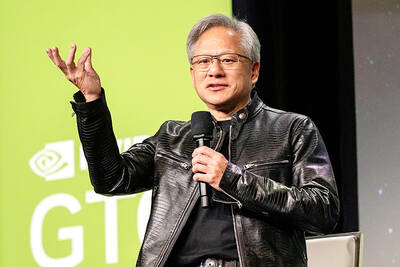State-run CSBC Corp, Taiwan (CSBC, 台灣國際造船) plans to sell a majority of its shares in line with its goal of completing its long-delayed privatization by the end of this year.
The proposed share sale is also expected to help CSBC, formerly known as China Shipbuilding Corp, raise capital for capacity expansion amid increasing orders for its vessels.
Major shipyards around the world have seen robust business in recent years as demand has surged for vessels to transport raw materials to emerging economies and ship goods to developed countries.
"As the business of international shipping lines continue to boom and shipbuilding shares have performed particularly well in the [South] Korean and Chinese stock markets in recent years, this year poses the best opportunity for CSBC's privatization," the State-owned Enterprise Commission said in a statement on Friday.
The Kaohsiung-based firm's attempts to sell up to 66 percent of its shares failed twice in the past three years, with the offers attracting few bidders. The sale was also affected by negative industry factors, including rising raw material costs, sharp expansion in worldwide shipbuilding capacity and global macroeconomic uncertainties.
This time, the company plans to sell between 51 percent and 55 percent of its shares at one time and has selected Fubon Securities Co (
It is not clear, however, when the share sale will begin or how much capital CSBC will raise from the sale. Its previous proposals called for selling a 66 percent stake to raise approximately NT$3.8 billion (US$118.8 million).
The statement said this year's share sale would be held through a public auction and still target institutional investors, as well as upstream and downstream companies in the shipping business.
But unlike its previous attempts, a portion of the 50 percent to 55 percent stake will be sold to individual investors and company employees, the statement said, without specifying the size of the retail subscription.
CSBC was planning to list its shares on the over-the-counter GRETAI Securities Market (
Fubon Securities is conducting an assessment of the share listing on the Taiwan Stock Exchange before submitting a final proposal to the ministry for review, said the commission, which oversees the business management of state companies, including CSBC.
CSBC reported a record pre-tax income of NT$4.74 billion last year. Earnings after deducting pension provisions reached NT$2.45 billion, compared with NT$1.49 billion in 2006.
The company is the nation's largest shipbuilder with one shipyard in Kaohsiung and another in Keelung. Its current backlog of orders is expected to keep CSBC busy until 2012, the commission's statement said.

Anna Bhobho, a 31-year-old housewife from rural Zimbabwe, was once a silent observer in her home, excluded from financial and family decisionmaking in the deeply patriarchal society. Today, she is a driver of change in her village, thanks to an electric tricycle she owns. In many parts of rural sub-Saharan Africa, women have long been excluded from mainstream economic activities such as operating public transportation. However, three-wheelers powered by green energy are reversing that trend, offering financial opportunities and a newfound sense of importance. “My husband now looks up to me to take care of a large chunk of expenses,

State-run CPC Corp, Taiwan (CPC, 台灣中油) yesterday signed a letter of intent with Alaska Gasline Development Corp (AGDC), expressing an interest to buy liquefied natural gas (LNG) and invest in the latter’s Alaska LNG project, the Ministry of Economic Affairs said in a statement. Under the agreement, CPC is to participate in the project’s upstream gas investment to secure stable energy resources for Taiwan, the ministry said. The Alaska LNG project is jointly promoted by AGDC and major developer Glenfarne Group LLC, as Alaska plans to export up to 20 million tonnes of LNG annually from 2031. It involves constructing an 1,290km

NEXT GENERATION: The company also showcased automated machines, including a nursing robot called Nurabot, which is to enter service at a Taichung hospital this year Hon Hai Precision Industry Co (鴻海精密) expects server revenue to exceed its iPhone revenue within two years, with the possibility of achieving this goal as early as this year, chairman Young Liu (劉揚偉) said on Tuesday at Nvidia Corp’s annual technology conference in San Jose, California. AI would be the primary focus this year for the company, also known as Foxconn Technology Group (富士康科技集團), as rapidly advancing AI applications are driving up demand for AI servers, Liu said. The production and shipment of Nvidia’s GB200 chips and the anticipated launch of GB300 chips in the second half of the year would propel

‘MAKE OR BREAK’: Nvidia shares remain down more than 9 percent, but investors are hoping CEO Jensen Huang’s speech can stave off fears that the sales boom is peaking Shares in Nvidia Corp’s Taiwanese suppliers mostly closed higher yesterday on hopes that the US artificial intelligence (AI) chip designer would showcase next-generation technologies at its annual AI conference slated to open later in the day. The GPU Technology Conference (GTC) in California is to feature developers, engineers, researchers, inventors and information technology professionals, and would focus on AI, computer graphics, data science, machine learning and autonomous machines. The event comes at a make-or-break moment for the firm, as it heads into the next few quarters, with Nvidia CEO Jensen Huang’s (黃仁勳) keynote speech today seen as having the ability to